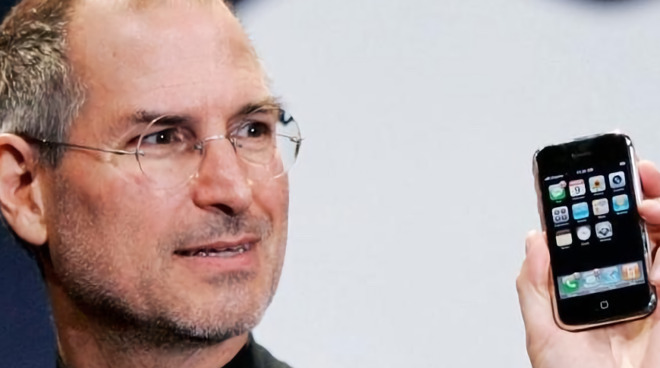Apple may return iOS to its original 'iPhone OS' name at WWDC
A prominent leaker claims Apple may revert to its original "iPhone OS" name for a forthcoming release of iOS, potentially to fit with iPadOS.

When Steve Jobs unveiled the iPhone, he said it ran OS X. On release, though, that was renamed "iPhone OS."
Prolific leaker Jon Prosser now claims that Apple is to launch some future version of iOS, possibly iOS 14, under the name "iPhone OS." This is the name that Apple used for the operating system on the original iPhone, and the change may be to align the branding with iPadOS.
"[The] iPhone runs OS X," said Steve Jobs at its unveiling in 2007. However, by the time the iPhone shipped, it was officially described as using iPhone OS. The name was changed to iOS in 2010 when the iPad was launched.
This new tweet is one of Prosser's shortest leaks, with no details or comment beyond the words "iPhone OS." Given that WWDC 2020 begins on June 22, and Apple is due to announce the next version of iOS there, it's most likely that this is when such a change would be made, if at all.
Apple did unveil iPadOS at its WWDC 2019. That was simultaneously a new name and a new fork for the operating system that will see it develop separately from iOS.
If the shift is accurate, it isn't clear what will happen to the name of the operating system for iPod touch, or if it too will run iPhone OS.

When Steve Jobs unveiled the iPhone, he said it ran OS X. On release, though, that was renamed "iPhone OS."
Prolific leaker Jon Prosser now claims that Apple is to launch some future version of iOS, possibly iOS 14, under the name "iPhone OS." This is the name that Apple used for the operating system on the original iPhone, and the change may be to align the branding with iPadOS.
iPhone OS.
-- Jon Prosser (@jon_prosser)
"[The] iPhone runs OS X," said Steve Jobs at its unveiling in 2007. However, by the time the iPhone shipped, it was officially described as using iPhone OS. The name was changed to iOS in 2010 when the iPad was launched.
This new tweet is one of Prosser's shortest leaks, with no details or comment beyond the words "iPhone OS." Given that WWDC 2020 begins on June 22, and Apple is due to announce the next version of iOS there, it's most likely that this is when such a change would be made, if at all.
Apple did unveil iPadOS at its WWDC 2019. That was simultaneously a new name and a new fork for the operating system that will see it develop separately from iOS.
If the shift is accurate, it isn't clear what will happen to the name of the operating system for iPod touch, or if it too will run iPhone OS.


Comments
You've got that backward.
Making a single operating system that works everywhere is easy.
Deciding that doing so would compromise your customer experience so you're better off building three operating systems derived from the same base … that's hard.
Windows Mobile failed because Microsoft believed that their customers wanted the Windows experience on a mobile device. They were wrong.
One size does not fit all.
...it makes sense for phones to be iPhoneOS, but now what about the iPod?